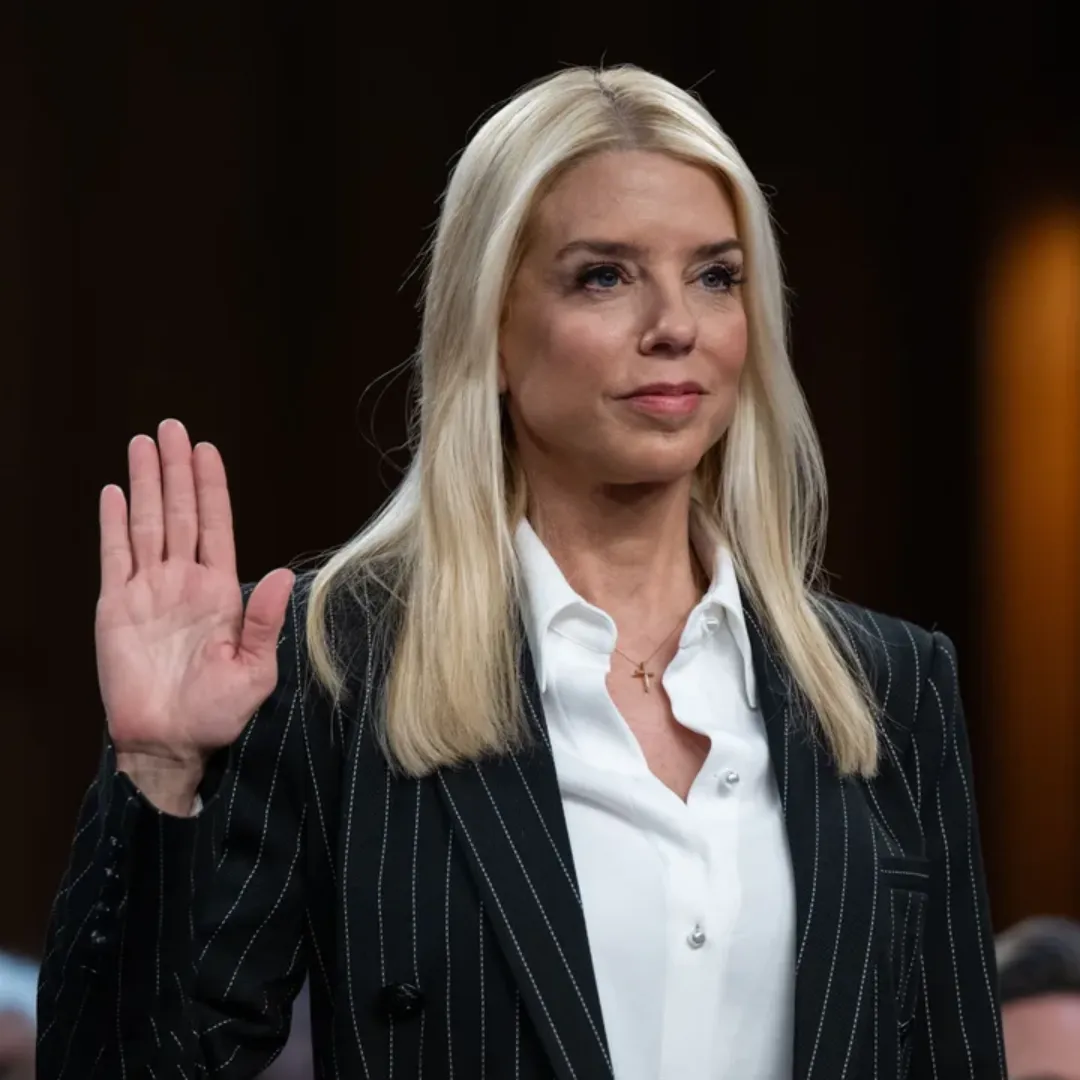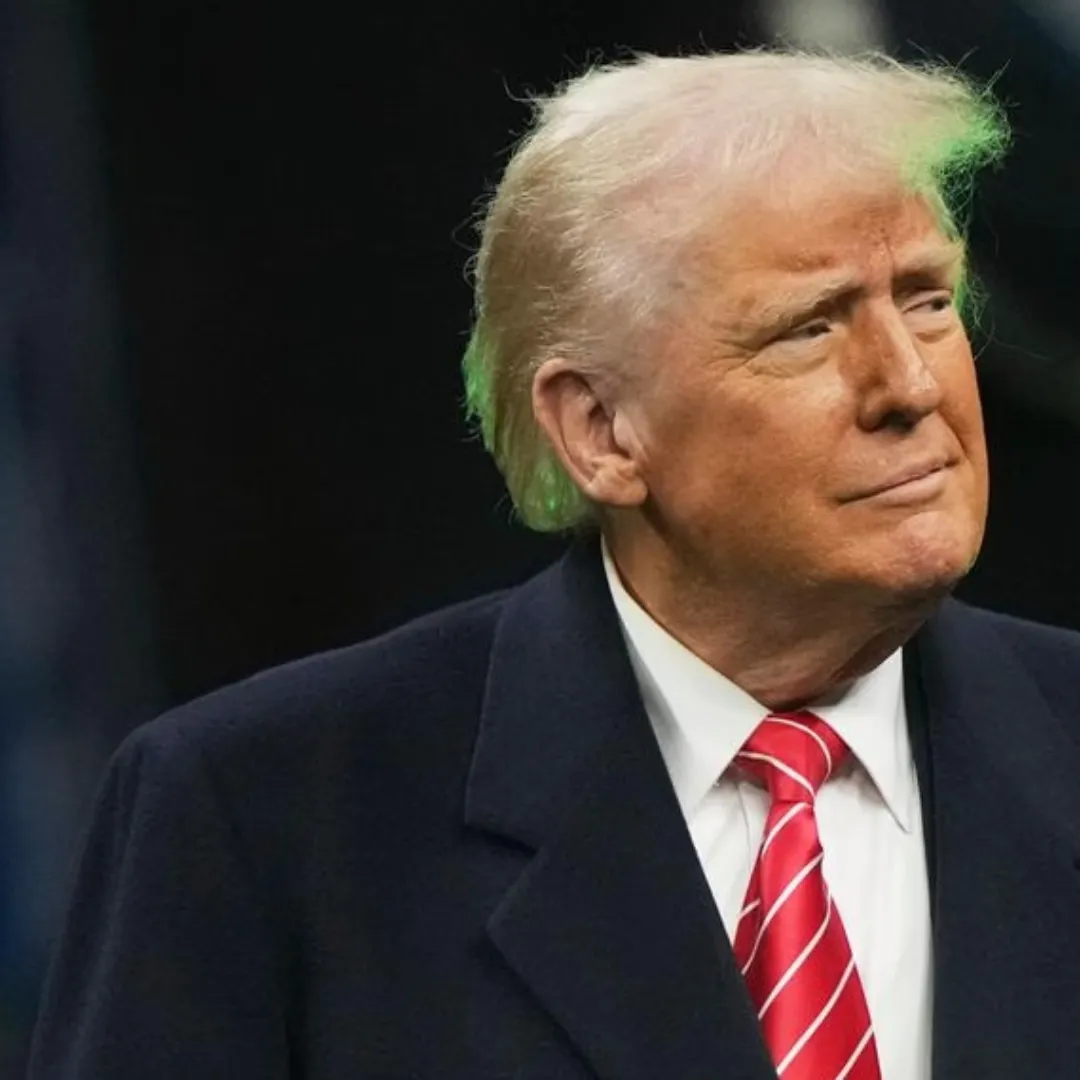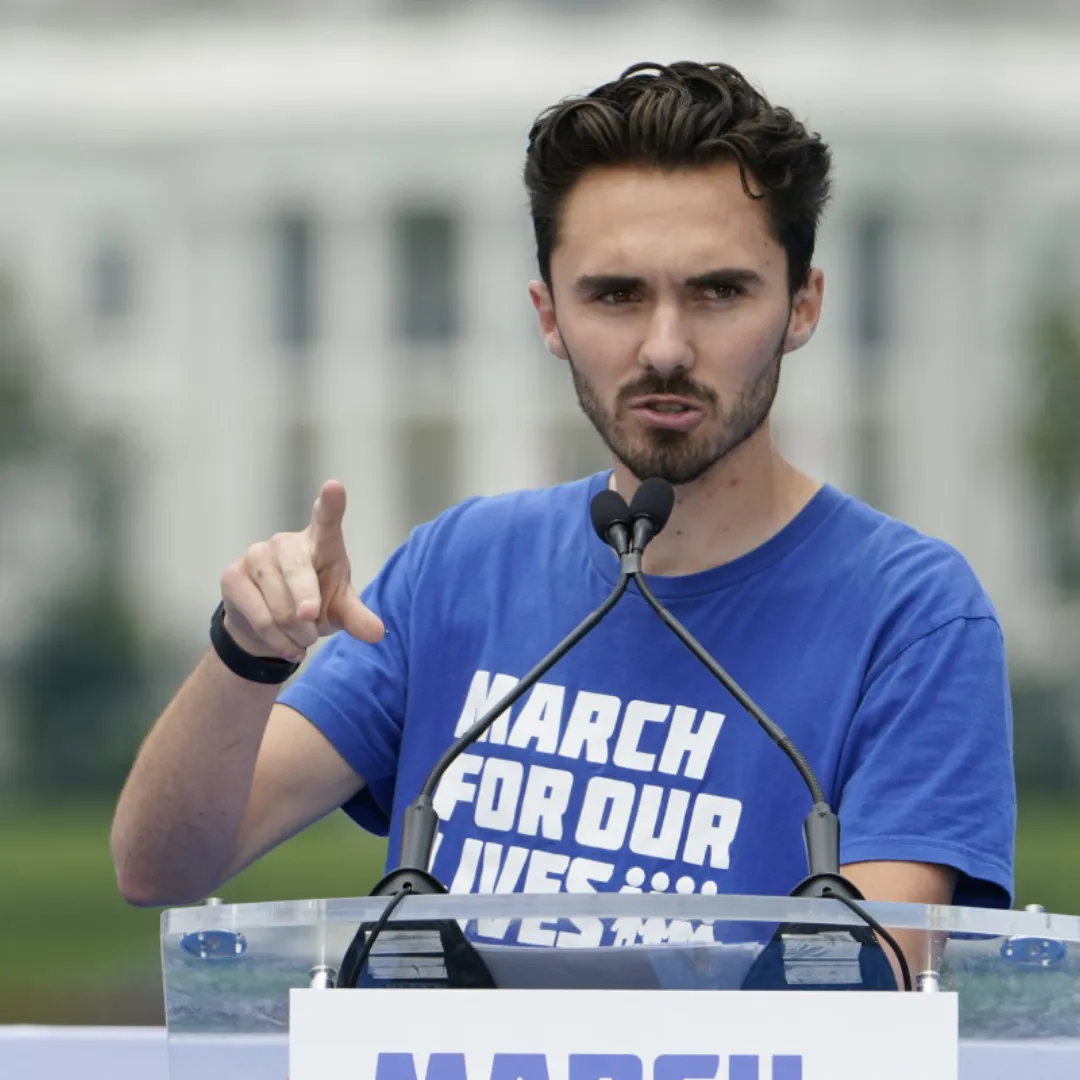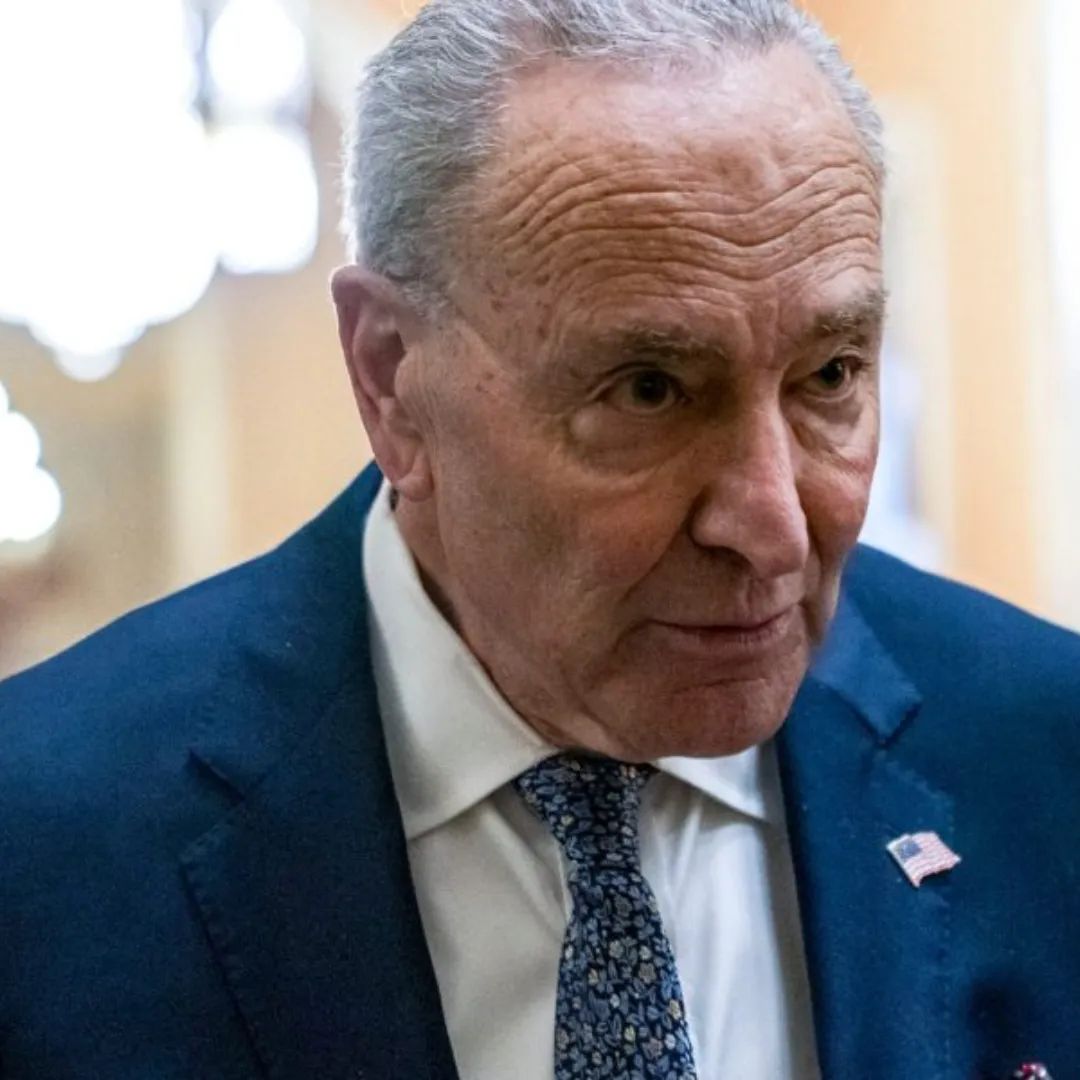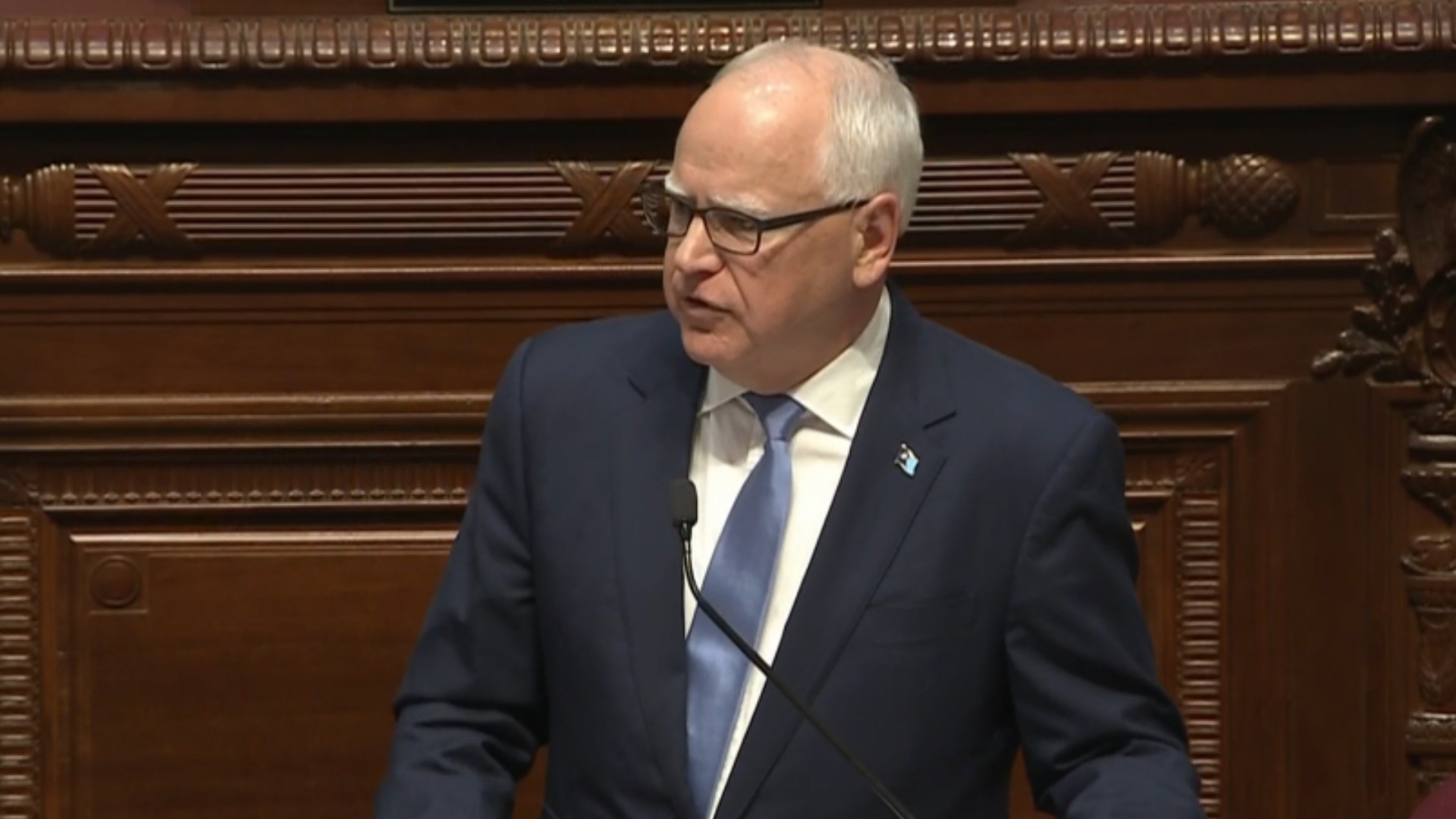
Minnesota Governor Tim Walz delivered a powerful State of the State address on Wednesday night, vowing to protect the people of his state from what he described as the chaos and turmoil unleashed by President Donald Trump.
Speaking before a joint session of the Legislature, Walz painted a grim picture of the nation's current trajectory, blaming Trump for the economic instability and global uncertainty that are taking a toll on both the country and Minnesota. He stated that while the state itself is as strong as it has ever been, the nation is suffering under a president whose actions have worsened conditions.
“The president of the United States has chosen – chosen! – to throw our economy into turmoil,” Walz declared emphatically. “Global markets are teetering on the brink of collapse,” he continued, highlighting the profound economic instability many Americans and Minnesotans are now facing.
The governor pointed to widespread layoffs, soaring costs for basic goods, and declining retirement savings as consequences of Trump’s economic policies. “If you haven’t checked your 401(k) lately, don’t do it,” Walz quipped, underscoring the financial strain that many people are now enduring.
For Walz, this speech was more than just a critique of the current administration—it was also a call to action for his state and its residents. In the wake of the 2024 election, where he ran as Vice President Kamala Harris' running mate and lost to Trump and Vice President JD Vance, Walz has increasingly positioned himself as a defender of working-class families.
His address was a reminder of what he sees as the inherent danger of Trump’s policies, which he claims have set the stage for lasting damage to the nation’s economy and global standing. His remarks were met with standing ovations from Democrats in the Legislature, but Republicans offered little more than polite applause, highlighting the partisan divide that defines the current political climate.
Walz emphasized that as governor, his priority is to protect Minnesotans from the fallout of the national chaos. “As governor, I will continue to do everything in my power to protect Minnesotans from getting hurt and continue to provide shelter from the storm for Minnesotans,” he pledged.
His words resonated with many in the state who feel vulnerable to the far-reaching effects of Trump’s policies, especially as the economic fallout worsens.
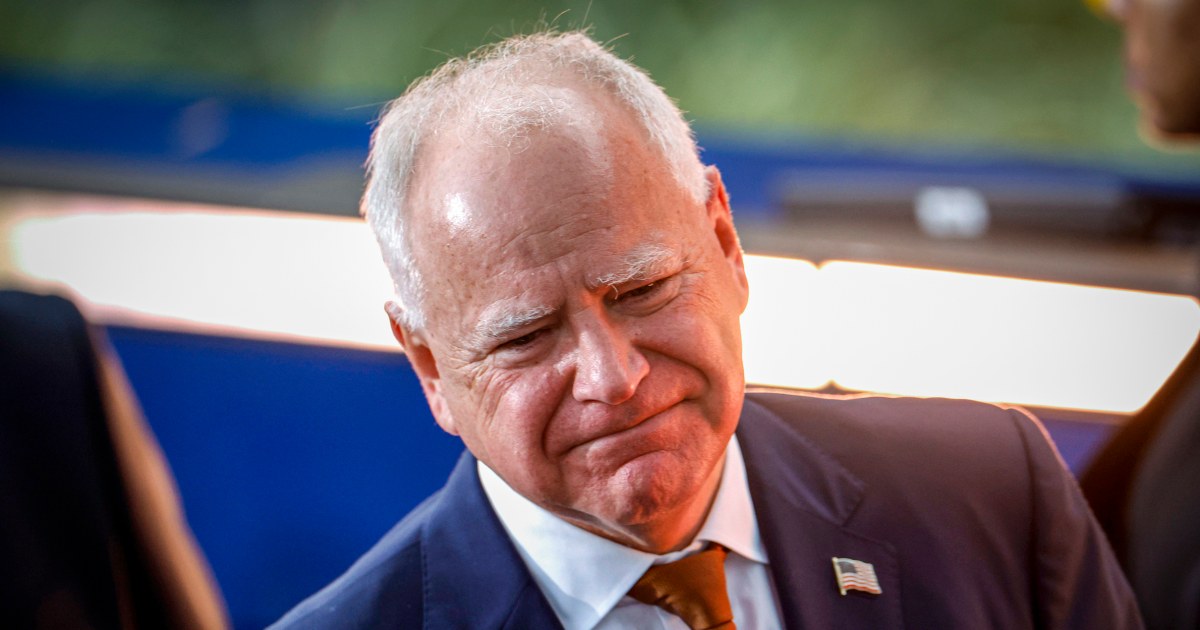
At the heart of Walz's speech was a focus on the upcoming legislative session, where the state is facing the urgent task of passing a balanced budget for the next two years. With the House evenly split at 67-67 and Senate Democrats holding only a slim two-seat majority, Walz emphasized that bipartisan cooperation would be necessary to achieve meaningful progress.
Despite the current political climate in Washington, he remains hopeful that the tradition of bipartisan collaboration in Minnesota will continue, regardless of the partisan gridlock in D.C.
However, Walz’s speech was not without controversy, particularly with his pointed comments about the role of national politics in the state’s fiscal challenges. House Speaker Lisa Demuth, the top Republican in the state, responded to Walz’s remarks with frustration, stating that “finger-pointing” at Washington had no place in Minnesota’s state government.
She called on lawmakers to focus on the immediate budget challenges without getting distracted by national political issues. But her No. 2, House GOP Floor Leader Harry Niska, was more direct in his criticism. He dismissed the governor’s speech as an “angry rant about Donald Trump” and accused Democrats of using Trump as a scapegoat for the state's challenges.
Walz’s comments also targeted the potential impact of federal budget cuts being proposed by Washington Republicans, particularly cuts to Medicaid, which could severely affect Minnesota’s budget.
He warned that such cuts could force him to call a special session later this year to address the resulting shortfalls, further adding to the economic pressure that the state is already facing.
“The truth is, this current administration in Washington, they’re not forever,” Walz said, expressing his belief that the current wave of national chaos will eventually subside. “These small, petty men will disappear into the dustbin of history,” he continued, referring to the Trump administration’s leadership.
“And when they do, there will be an opportunity and an obligation to actually rebuild government so that it works for working people.” This sentiment captured the essence of Walz's broader message: while the current political storm is overwhelming, there is hope for the future, and it will be up to leaders like himself to rebuild and restore a functional, responsive government.

Although Walz’s remarks were aimed at holding the Trump administration accountable, they also served as a reminder of the importance of state leadership in times of national uncertainty.
He called for Minnesotans to band together to create solutions that benefit working people, promising that despite the national chaos, Minnesota could continue to be a beacon of stability and progress.
The governor’s decision to focus on state-level solutions rather than national criticisms is also a reminder of his political trajectory. Walz has frequently been mentioned as a potential Democratic presidential contender for 2028, and his visibility in the national media has only increased in recent months.
His appearance in Iowa earlier this year, where he held a series of town halls in districts represented by Republicans, signals that he is positioning himself as a voice for a centrist, pragmatic approach to governance in contrast to the current turmoil in Washington.
By making his first major speech post-election a call for unity and state-level cooperation, Walz is not just looking to guide Minnesota through current challenges but also to keep his name in national discussions for the future.
Despite the political divisions and mounting challenges ahead, Walz remains steadfast in his commitment to governing in a way that reflects his values of cooperation, progress, and protection of working-class interests.
His leadership during this uncertain time will likely be a defining factor for the state as it faces the tough decisions of the upcoming legislative session. As Minnesota’s legislature races to balance the state’s budget by May 19, Walz will be at the helm, seeking to navigate these challenges while keeping his promises to protect the state from the external forces of national dysfunction.
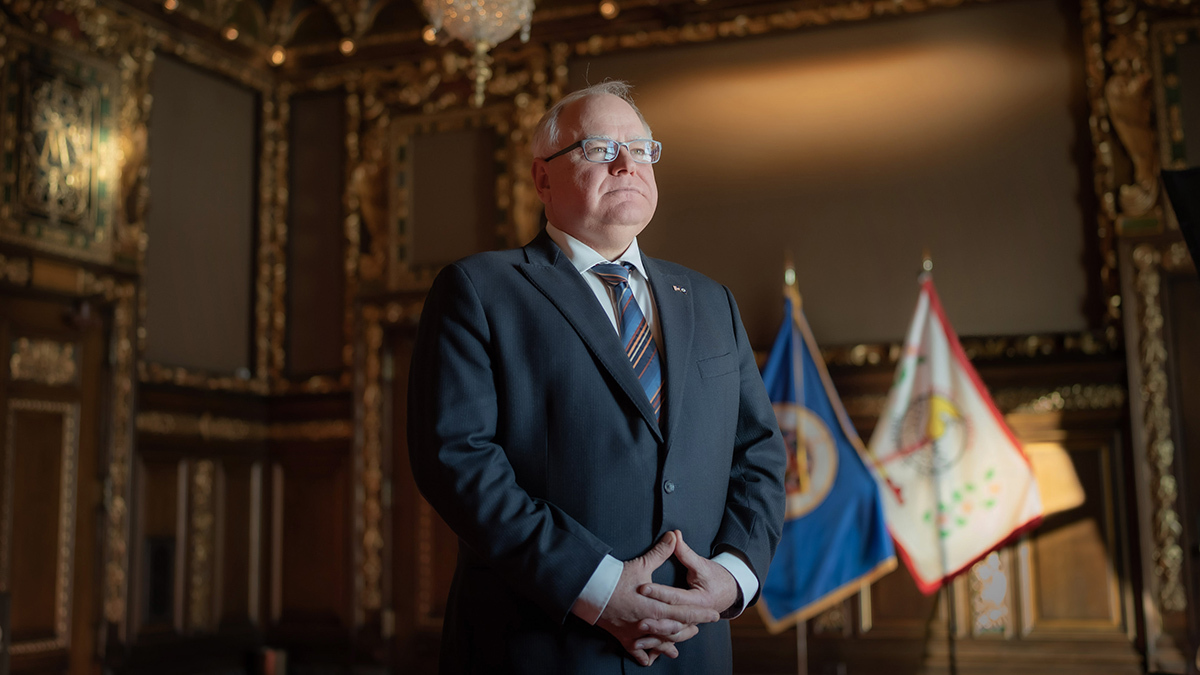
In the end, Walz’s address was more than just a critique of Trump’s presidency—it was a call for Minnesotans to rise above the national chaos and continue to work together for a brighter, more stable future.
Whether he can maintain this focus on state-level leadership while the turbulence of national politics swirls around him remains to be seen, but for now, Walz’s commitment to guiding Minnesota through uncertain times is clear.
